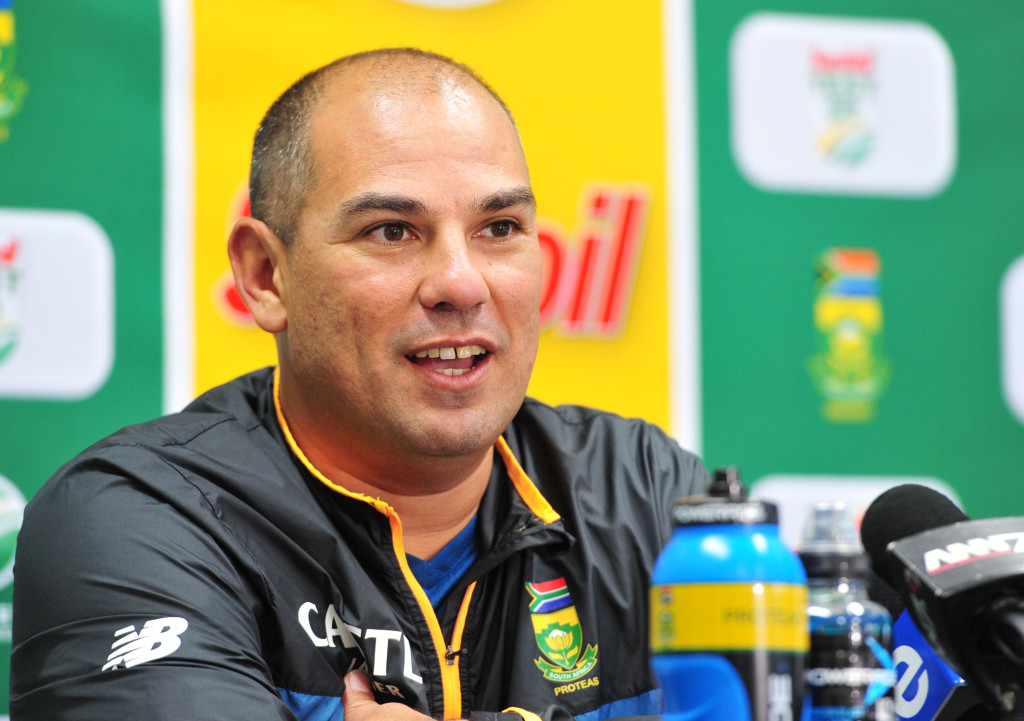Five lessons from the third Test at the Wanderers, which England won by seven wickets.
Balance was all wrong
It’s easy to say this now, but picking the exciting Hardus Viljoen ahead of the more reliable Kyle Abbott was probably not the right call. It left the bowling attack without any balance which put all the bowlers under pressure because there was no one, except Kagiso Rabada, who could dry up an end. Viljoen was too inconsistent and perhaps more was expected of him considering he was playing on his home ground in conditions he knows well. Rabada was the only shining light and the maturity and intelligence he showed was astounding for a 20-year-old. He led the attack by example, even if they couldn’t follow and showed up Morne Morkel’s lack of leadership when the chips were down.
Consultants
There can be no argument that South Africa’s biggest problem over the last three months has been their poor batting. Yet, the team is still without a permanent batting coach or consultant. Russell Domingo asked Dolphins coach Lance Klusener to work with the tail-enders prior to the Durban Test as he felt South Africa’s batting contributions there would be important throughout the series. No one was asked to work with the top-order batsmen who had endured such a torrid time in India. It was like the team just expected things to improve without actually doing something about it. After the heavy defeat in Durban, former captain Graeme Smith was brought in as a consultant, but he only briefly worked with the players and continued with his commentating role for SuperSport. After India it would perhaps also have helped to get a mental coach, someone like Mike Horn, who went to the World Cup with them. That never happened. The question then becomes did the team management and particularly Domingo do enough to help the team through this difficult period?
A false dawn
After South Africa’s batting performance at Newlands, where Hashim Amla declared on 627, the feeling was that maybe this team had turned a corner. Amla and AB de Villiers spoke about the ‘shift in momentum’ and the renewed confidence within the side. That momentum quickly disappeared at the Wanderers and it’s safe to say South Africa are now even worse off than they were after Durban. Cape Town was a false start. This team have not turned the corner and they may not want to hear this, but a few things will need to change before that happens.
Negative mindset
Graeme Smith said after the third Test: ‘Some of the decision-making around the space looks a bit worrisome for me. The team seems a bit flat. Some of the messages coming out in the press conferences don’t seem positive and it’s coming from senior players. You are in a big series and there is a lot of negativity among your senior players.’ Why did AB de Villiers feel it necessary to talk about his commitment to the Test side and the busy international schedule on the eve of a massive Test against England? His timing was poor and betrayed his mindset ahead of a must-win game for the Proteas. While De Villiers’ honesty with the media is refreshing he was perhaps too honest here and should have handled the situation better.
How safe is Domingo?
It becomes inevitable whenever a team have struggled for as long as the Proteas have that questions begin to be asked of the people in charge. Hashim Amla has already resigned, which only leaves Russell Domingo. His decision-making and selections, even though he’s not solely responsible for them, have been suspect. There is a lack of accountability within the current structure. Under Domingo’s watch South Africa have lost three of their last six full Tests (the second one in India rained out) inside three days. They lost 3-0 in India and are 2-0 behind, on home soil, against England with a Test to play. How long before his situation becomes untenable? Yes, the side is going through a transition but the manner of defeat has stayed consistent and there has been little sign of improvement over the last three months.







